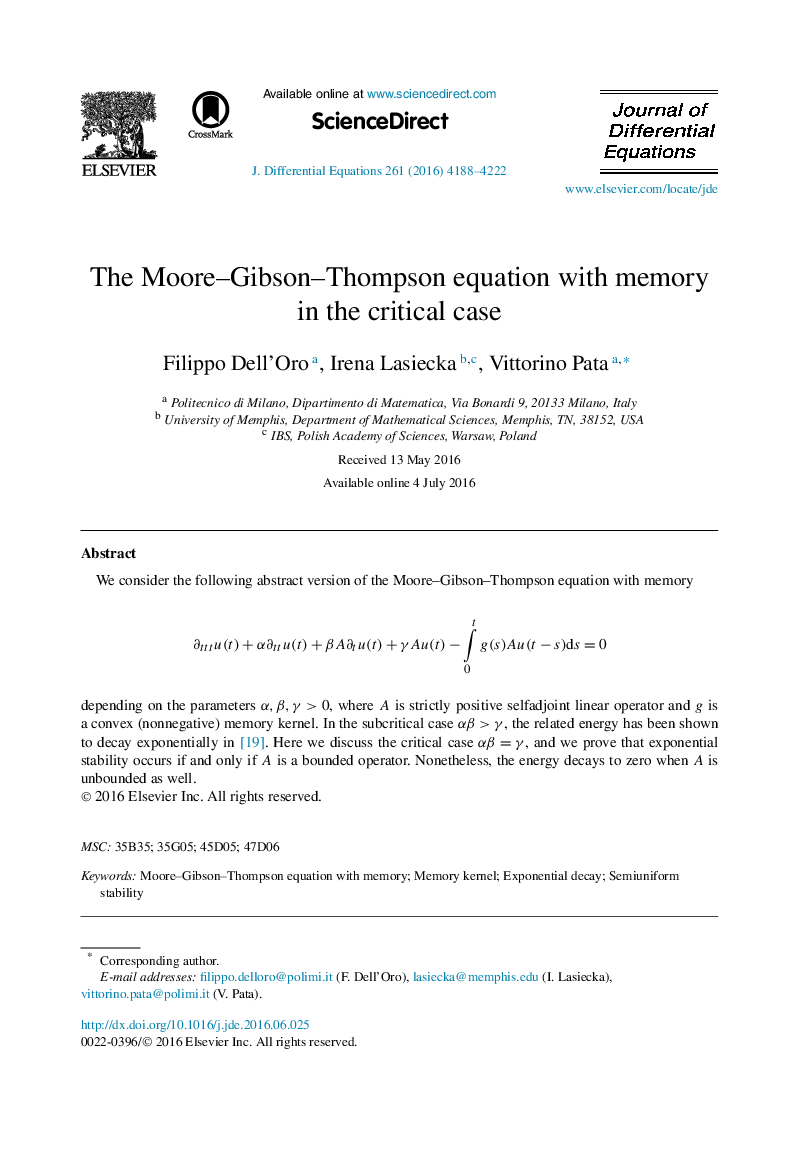| Article ID | Journal | Published Year | Pages | File Type |
|---|---|---|---|---|
| 4609440 | Journal of Differential Equations | 2016 | 35 Pages |
Abstract
We consider the following abstract version of the Moore–Gibson–Thompson equation with memory∂tttu(t)+α∂ttu(t)+βA∂tu(t)+γAu(t)−∫0tg(s)Au(t−s)ds=0 depending on the parameters α,β,γ>0α,β,γ>0, where A is strictly positive selfadjoint linear operator and g is a convex (nonnegative) memory kernel. In the subcritical case αβ>γαβ>γ, the related energy has been shown to decay exponentially in [19]. Here we discuss the critical case αβ=γαβ=γ, and we prove that exponential stability occurs if and only if A is a bounded operator. Nonetheless, the energy decays to zero when A is unbounded as well.
Related Topics
Physical Sciences and Engineering
Mathematics
Analysis
Authors
Filippo Dell'Oro, Irena Lasiecka, Vittorino Pata,
